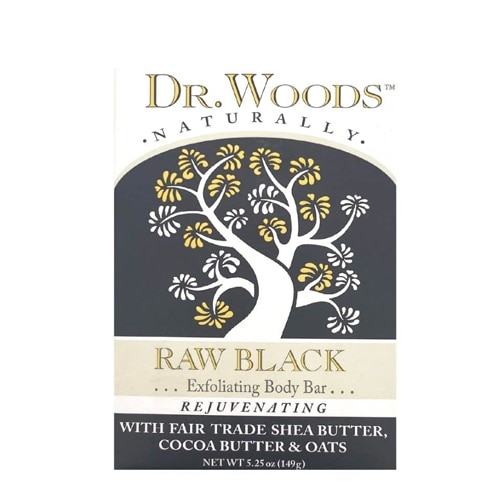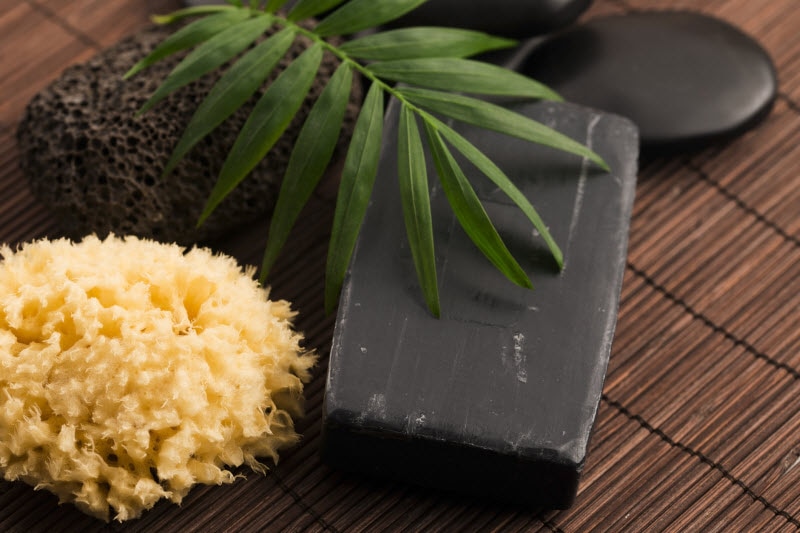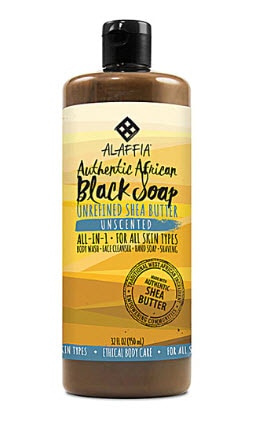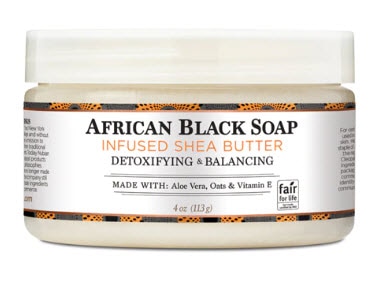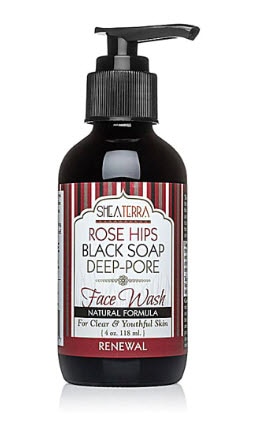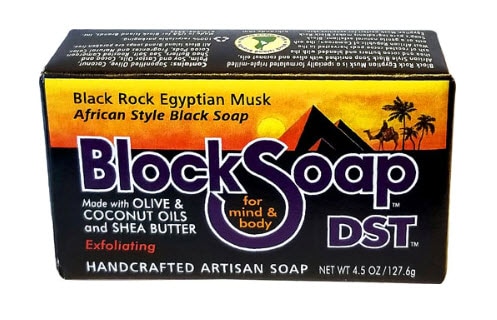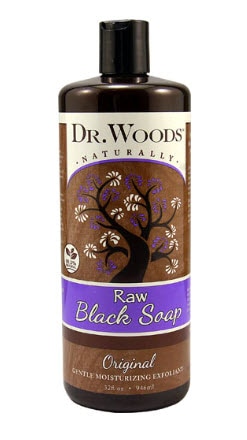Have you seen an uptick in African black soap products lately? These plant-based, synthetic-free soaps are lining the shelves of health food and cosmetic stores because of their impressive benefits for skin.
And users claim that it really does work to boost skin health. When 100 African black soap users were surveyed, 51% of them reported being very satisfied with the efficacy of black soap and 40% reported being somewhat satisfied. Among the participants, African black soap was being used for skin issues like acne, fine lines, eczema and dark spots.
So what exactly is African black soap and what makes it so special?
What Is African Black Soap?
You’ve probably heard of African black soap, but may be wondering what makes it different than your standard bar of soap? For starters, your standard bar of soap is probably made with synthetic and refined ingredients. They can cause irritation, dryness and skin sensitivity.
Black soaps, on the other hand, are made with a combination of ingredients that are native to regions throughout Africa.
The herbal components that may be present in black soaps include:
- Aloe vera
- Honey
- Coconut oil
- Camwood extract
- Cocoa pod ash
- Palm kernel oil
- Shea butter
- Avocado oil
- Plantain bark
- Lime juice
The ingredients will vary from region to region, and across different brands, but a true raw, unprocessed African black soap will be all-natural and unrefined. Unprocessed African black soap has a rough, exfoliating texture and as the name implies, it’s typically black or brown in color. It can be used daily for overall skin care and enhanced appearance.
What are Some African Black Soap Benefits?
1. Antimicrobial properties
When black soaps were evaluated for a study published in African Journal of Traditional, Complementary and Alternative Medicines, all of them were found to possess antimicrobial activity. Researchers concluded that these properties allow black soaps to contribute to the treatment and management of skin infections that are caused by bacteria.†
The antimicrobial property of African black soap is what makes it effective against acne and some skin infections. Not only does it fight bacteria that leads to breakouts and inflammation, but its exfoliating texture also removes microorganisms when it’s used to scrub the body.†
2. Hydrates the skin
The ingredients in African black soap are hydrating and help to moisturize the skin without making it greasy. This is due to the coconut oil, cocoa, shea butter and avocado oil that’s often present in black soap.
While these natural ingredients are hydrating, some of them help to regulate sebum production, so you won’t be left with oily, greasy skin.
3. Improves skin texture and appearance
Because a good quality African black soap is left unprocessed, the raw ingredients create a rough, exfoliating surface that helps to reduce dead skin cells and scrub away microorganisms. This helps to improve skin texture, leaving you with a smoother surface, and it promotes the growth of new skin cells.
If you find the texture to be too rough for your skin, it can be smoothed out in the shower or you can rub the soap on to a washcloth and use that on the skin instead.
4. Soothes rashes and irritations
The plant-based ingredients in African black soap have healing, anti-inflammatory effects. Coconut oil, for example, has shown to improve the symptoms of skin disorders because of its moisturizing and soothing properties.†
And aloe vera is often used to promote wound healing, ease skin irritations and soothe rashes. This is why black soap may help to improve razor burn, sunburn, psoriasis, eczema and more.†
5. Reduces fine lines and scars
African black soap contains fatty oils and nutrients that work to promote healing and skin cell turnover. The vitamin E content, for example, helps to reduce inflammation, fight skin damage from free radicals and improve the appearance of fine lines, scars and stretch marks.†
6. May reduce hyperpigmentation
Black soap’s anti-inflammatory, bacteria-fighting and antioxidant properties allow it to help reduce hyperpigmentation, or skin discoloration. Using black soap regularly may help to even your skin complexion, addressing the root of the problem – like sun damage or inflammation.†
Precautions to note
African black soap is made with a combination of natural ingredients. If you are sensitive to some plant-based ingredients, be sure to read the label carefully.
When you first try African black soap, use it on a small surface area for the first few days. If you notice any skin irritation or you develop a rash, don’t use it anymore.
Black soap has a naturally rough texture, which can be a little too exfoliating for some skin types. You can work on smoothing out the bar with water, or use a washcloth to massage the soap into your skin. If you are using the bar in its raw state, apply it gently to the skin in circular motions.
†These statements have not been approved by the Food and Drug Administration. These products are not intended to diagnose, treat, cure or prevent disease.
See for yourself why everyone's bubbling over with excitement about African black soap:



